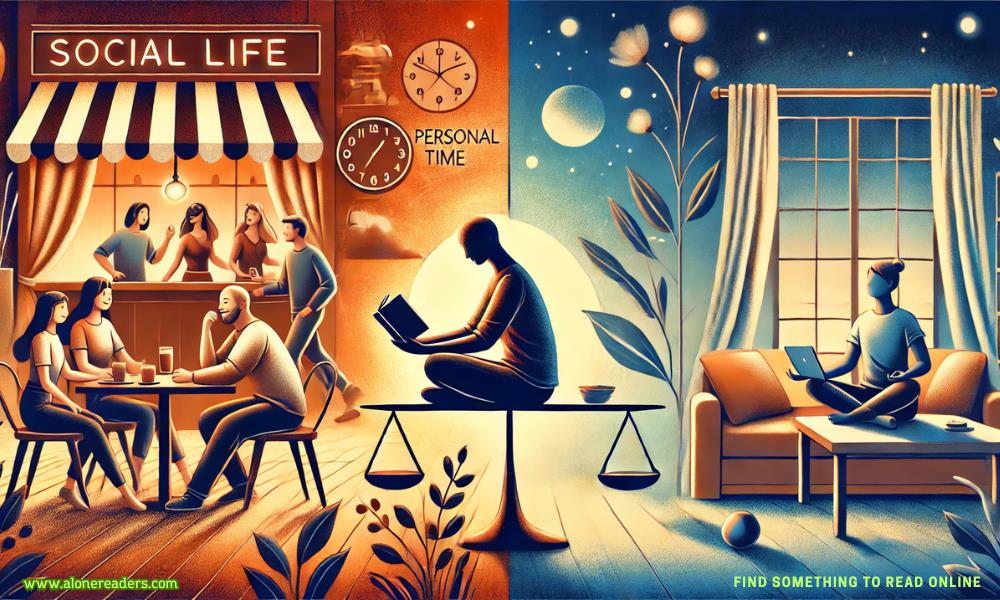
In today's fast-paced, hyperconnected world, the concept of balance has become more essential than ever—particularly when it comes to maintaining harmony between our social lives and personal time. While human beings are inherently social creatures who thrive on connection, it’s equally important to cultivate solitude and personal space. Striking the right balance between these two dimensions is critical to our emotional health, mental clarity, productivity, and overall wellbeing.
People often lean heavily toward one end of the spectrum. Some immerse themselves in endless social engagements—parties, work gatherings, family obligations—without taking a moment to recharge. Others retreat into prolonged solitude, avoiding social interactions due to stress, anxiety, or lifestyle constraints. Both extremes can negatively impact mental health. Social burnout can lead to fatigue, irritability, and emotional depletion, while excessive isolation is linked to depression, anxiety, and reduced cognitive performance. Therefore, consciously managing how we divide our time between others and ourselves is not just a lifestyle choice, but a psychological necessity.
One major barrier to achieving this balance is societal pressure. In many cultures, being busy and socially engaged is equated with success. People who choose solitude are often misinterpreted as antisocial or unproductive. Conversely, those who prioritize alone time are sometimes perceived as selfish or introverted to a fault. These misconceptions create internal conflicts, making individuals feel guilty about prioritizing personal space or uneasy about saying “no” to social invitations. Overcoming this begins with understanding that both social interaction and solitude serve vital functions in a healthy lifestyle.
Social interactions foster connection, belonging, and a sense of identity. Spending time with friends, colleagues, and family can alleviate feelings of loneliness, encourage laughter and emotional release, and provide a support network in times of need. Being around others also enhances communication skills, builds empathy, and often exposes individuals to new ideas and perspectives. However, too much social interaction—especially of the superficial kind—can become exhausting. When our calendars are full but our minds feel empty, it’s a sign that balance is missing.
On the other hand, personal time acts as a reset button. It allows for introspection, goal setting, emotional processing, and creativity. Solitude helps people connect with their inner selves, facilitating better self-awareness and personal growth. It’s in moments of quiet that many experience their most productive, innovative, or emotionally rich insights. However, prolonged personal time without meaningful social connection can breed feelings of isolation, boredom, or existential anxiety. That’s why the quality of both social time and alone time matters more than the quantity.
Achieving a balance requires intentional boundaries. One practical step is scheduling both types of time into your calendar with equal respect. Just as one might schedule a dinner with friends, it’s important to book time for yourself—whether it’s an hour for a walk, reading, journaling, or simply sitting in stillness. This prevents personal time from becoming an afterthought squeezed between appointments or canceled altogether.
Equally important is learning to say “no” without guilt. Declining a social invitation does not mean you’re being unkind or disinterested—it means you’re preserving your energy for when you can be more fully present. Communicating this with honesty and kindness can help others respect your boundaries and may even inspire them to reflect on their own. Likewise, recognizing when your alone time has tipped into avoidance or isolation is crucial. If you find yourself frequently withdrawing or feeling disconnected, reaching out to someone—even for a short conversation—can be immensely grounding.
Technology plays a dual role in this balance. Social media and messaging apps make it easier to stay connected, but they also blur the line between social time and solitude. Many people feel obligated to respond to messages instantly, attend virtual meetings after hours, or maintain a public presence on social platforms. Creating tech-free zones or time blocks—especially before bed or during meals—can help reclaim personal time and reduce the feeling of being “always on.”
Another key factor is understanding your own energy rhythms. Some people are naturally more extroverted and feel recharged by social interaction, while others are introverted and find their energy restored in solitude. Neither is better or worse—what matters is recognizing your own tendencies and honoring them. If you’re an introvert, planning downtime before or after a social event can help you avoid overstimulation. If you’re an extrovert, too much alone time might lead to restlessness or low mood, making scheduled social activities essential to your emotional health.
Balance also evolves with life stages. In youth and early adulthood, social engagement may dominate as individuals explore identity and build networks. Midlife might call for more solitude and reflection, particularly for those juggling work, family, and self-development. Later stages of life may re-emphasize social connection to combat loneliness or maintain cognitive sharpness. Recognizing that balance is fluid allows individuals to adapt rather than cling rigidly to one pattern.
Furthermore, mental wellbeing is deeply connected to the quality of both your social and personal time. A meaningful conversation with a close friend is more nourishing than an evening spent scrolling through group chats. Likewise, true solitude involves being present with oneself, not numbing out through binge-watching or aimless web browsing. Being intentional with how you spend your time makes a massive difference in its emotional payoff.
A healthy balance doesn’t always mean equal time. It means responsive time—listening to what your mind and body need in the moment. Sometimes that’s a night out; sometimes it’s a bath and a book. Both are valid. Learning to tune into those needs, rather than pushing through them to meet others’ expectations, leads to a more peaceful, fulfilled life.
Ultimately, balancing social life and personal time is not about rigid scheduling but cultivating an awareness of what nurtures your mental and emotional health. It requires honesty, discipline, and a willingness to recalibrate often. By creating space for connection and reflection in equal measure, individuals empower themselves to live more consciously, manage stress better, maintain emotional equilibrium, and show up more authentically in all areas of life.